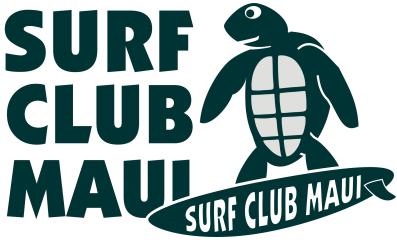SELF-REGULATION GUIDELINES FOR SURFING AND SUP
Self-regulation guidelines for Surfing and SUP
On Maui like many other popular surfing destinations we have seen a dramatic increase in people surfing. This includes Longboarders as well as SUP boarders.
This is cause for concern as many new surfers do not know the etiquette and rules of surfing, and also many new surfers do not have the control necessary to surf safely in crowded conditions.
Here is a set of Updated Surfing Rules to use as a guideline to help make the surfing experience safer and more enjoyable for all:
1) Know your level.
Newbies:
If you have never surfed or supped, get a lesson.
Do not try to learn on your own, unless you are far away from other people. A lesson will show you the basics, and hopefully teach you how to avoid getting stuck in the washing machine.
Beginners:
A beginner should stay at beginner breaks. Do not attempt to mix in to more advanced breaks until you have the skill to do so.
Intermediate:
Once you have mastered the basics, move away from the true beginner spots to make room for the beginners. Avoid beginner areas because beginners do not have the control to avoid you.
Advanced:
Advanced surfers should go find some advanced breaks, and again avoid beginners. Advanced surfers have the ability to catch all of the waves, but just because you can, doesn’t mean that you should.
2) Know your limits:
If in doubt, don’t go out.
If the conditions are too big, or the paddle too long. Don’t push yourself. You should stay within your ability to handle the conditions. If you don’t have the skills to handle the conditions you will be a liability to yourself and others.
3) Avoid Crowds:
More people means less waves, unless you take more than your share. So unless you are there to socialize, you should avoid crowds. Take a drive and find a less crowded spot.
(Maui has 120 miles of coastline, go explore).
4) Respect others:
No matter how good you are, or think you are, every one else deserves the waves just as much as you do. And everyone deserves to be treated with respect. This means that you should not diminish their safety by cutting too close, or diminish their share of waves, even if they are going to wipeout on a few of them. Do not get into stressful situation by acting possessive or trying to take over a spot. That is disrespectful to the other guy.
5) Use a board leash:
Your board leash is for public safety. Because you cannot guarantee that you will not lose your board once in a while. A loose surfboard or standup board can easily hurt a lot of people. So always use a board leash. All Surfers; shortboard, bodyboard, longboard, and standups need to use a leash. Otherwise you better only surf alone.
6) Share the waves:
No one owns the waves, they are for everyone. So always share the waves with the other surfers in the line up. Maybe the other guy has two jobs and only gets one hour to surf a week. Get a wave, give a wave. Keep the circulation fair. You don’t cut in line at the store, so don’t do it in the surf. Even if you have the longest board or you are the best paddler, and can catch every wave, it doesn’t mean that you should. Surf with aloha.
7) Be Safe:
Being safe means that you must always be in control of your gear, and your actions. If you cannot take off on a wave in a safe way then don’t do it. One wave isn’t worth risking your life, or risk hurting someone. If it is risky, pull out and get the next wave instead. Never take off if someone is in your path. And do not let go of your board when you are close to anyone else.
8) Paddle Around the break:
Paddle around the break to get out, not through it. This gives the other guys more room to surf in on the wave, and less stress worrying about avoiding hitting you. Paddle a little further around the break and make room for the guys actually surfing the wave.
9) Don’t rest in the takeoff zone:
If you are taking a break, pull over into the channel. Do not hang out in the take off zone or on the inside. You will just be blocking the other guys from getting waves.
If you are not about to catch a wave, then pull over and let another surfer get close to the peak so that they can have their turn.
10) Avoid beginners and Children:
All surfers should avoid beginners and children. Do not surf through a pack of beginners. And do not surf close to kids surfing. They do not have the skills to avoid you, and you might force them to bail out, and risk injury. If you have the skills to avoid beginners then you should. Do not drop in, or cut through, or get close to a beginner, because you could create a safety hazard to them and you.
Please remember these guidelines, and don’t forget that we are all out there to have fun.
Be safe and surf with aloha,
Surf Club Maui
Source: Surf Club Maui Blog
